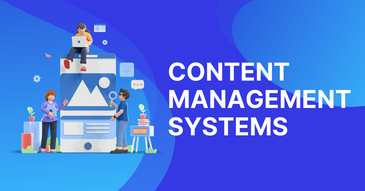Introduction
In an increasingly digital world, the effectiveness of your online presence can make or break your business. Whether you’re a business owner, marketer, or simply someone interested in optimizing your website, understanding the benefits of a Content Management System (CMS) is crucial. A CMS can transform how you manage and update your website, streamline your workflow, and enhance your digital strategy. This blog post will explore the extensive benefits of using a CMS, providing you with valuable insights into how it can elevate your online operations.
What is a CMS?
A Content Management System (CMS) is a software platform that allows users to create, manage, and modify digital content on a website without needing specialized technical knowledge. Think of it as a user-friendly interface that lets you manage your website’s content easily. Popular CMS platforms include WordPress, Joomla, and Drupal, each offering various features to help you control your website’s appearance and functionality.
1. Ease of Use
One of the standout features of a CMS is its simplicity and user-friendliness.
- No Coding Required: Modern CMS platforms are designed with non-technical users in mind. You don’t need to be a coding expert to create and manage content. Most CMS platforms offer intuitive, drag-and-drop interfaces that make website management as simple as possible.
- Intuitive Editing: With What You See Is What You Get (WYSIWYG) editors, you can format text, insert images, and adjust layouts in real-time. This visual approach allows you to see exactly how your content will look on the website without needing to preview or test separately.
2. Streamlined Content Management
Effective content management is essential for maintaining a dynamic online presence.
- Organized Structure: A CMS provides a structured way to manage different types of content, such as blog posts, pages, and media files. You can organize content into categories and tags, making it easier for users to find what they’re looking for and for search engines to index your site.
- Version Control: Many CMS platforms come with version control features that keep track of changes made to your content. This allows you to revert to previous versions if needed, which is particularly useful for correcting mistakes or undoing unwanted changes.
3. Enhanced SEO Capabilities
Search engine optimization (SEO) is crucial for driving traffic to your website.
- SEO Tools and Plugins: Most CMS platforms come with built-in SEO tools or offer plugins that help you optimize your site for search engines. These tools can assist with managing meta tags, generating sitemaps, and analyzing keyword performance.
- Mobile Responsiveness: Many CMS platforms ensure that your website is automatically mobile-friendly, which is a significant factor in SEO. Search engines, like Google, prioritize mobile-friendly websites in their search results, making it essential for user experience and visibility.
4. Customization and Flexibility
Every business has unique needs, and a CMS provides the flexibility to meet them.
- Themes and Templates: CMS platforms offer a wide range of themes and templates that you can customize to fit your brand’s identity. You can easily change the look and feel of your site without needing to redesign it from scratch.
- Plugins and Extensions: Enhance your website’s functionality with plugins or extensions. Whether you need features like e-commerce capabilities, social media integration, or advanced analytics, there’s likely a plugin available that fits your requirements.
5. Improved Security
Keeping your website secure is a top priority to protect your data and user information.
- Regular Updates: Reputable CMS platforms frequently release updates and security patches to address vulnerabilities and improve functionality. Staying up-to-date with these updates helps safeguard your site from potential threats.
- User Roles and Permissions: CMS platforms often include features for managing user roles and permissions. This allows you to control who can access and edit different parts of your website, enhancing security by limiting access to sensitive areas.
6. Cost-Effective
Managing a website doesn’t have to break the bank.
- Lower Development Costs: Using a CMS can significantly reduce the cost of web development. Many CMS platforms offer affordable plans, and there are also free options available with a range of functionalities.
- Reduced Time Investment: The user-friendly nature of CMS platforms means you spend less time managing your website and more time focusing on other important aspects of your business. The ability to easily update content and add features without needing extensive technical expertise saves both time and money.
7. Scalability
As your business grows, your website needs to grow with it.
- Adaptable Infrastructure: CMS platforms are built to handle everything from simple personal blogs to complex e-commerce sites. You can scale your website’s features and performance as your needs change, ensuring that it remains effective as your business evolves.
- Support for Multiple Users: If your business expands, a CMS can accommodate additional users with different roles and permissions. This allows teams to collaborate on content creation and management efficiently, without overlapping responsibilities or security concerns.
Conclusion
Embracing a Content Management System (CMS) offers numerous advantages that can simplify your website management, enhance SEO, and provide flexibility for future growth. By leveraging the ease of use, streamlined content management, and improved security features of a CMS, you can focus on what matters most—growing your business and engaging with your audience.
Are you ready to explore the benefits of a CMS for your website? Take the next step and contact us at MDA Websites for expert advice and personalized support. Let’s work together to optimize your online presence and achieve your digital goals.
